|
Playing drums in a big band requires a diverse set of skills, including the ability to perform various music styles, from Gene Krupa's 1938 "Sing, Sing, Sing," to Santana's "Oye Como Va," and Bruno Mars' "Uptown Funk." Furthermore, proficient sight-reading abilities are essential. As well, a rock drum set is necessary, as an 18-inch bebop set is insufficient. (I play a 22 inch Yamaha Club Custom set with Paiste cymbals.) Finally, endurance is also key. To acquire these skills, one should play along with classic big band albums. I have transcribed many tracks from albums such as Basie live at the Sands, Benny Goodman live at Carnegie Hall, and Buddy Rich Mercy Mercy. Daily sight-reading practice is crucial; purchase the charts, listen to the recordings, and dive in. When sight-reading a new chart, quickly review the title, arranger/composer, style, form, tempo, whether sticks or brushes are needed, and if there's a drum solo. Finally, build up your endurance slowly. Gerald Klickstein, author of The Musician's Way, suggests increasing your practice time 10% per week to avoid injury. For sight-reading, practice with snare drum books and a metronome at a slow tempo. Endurance can be improved by staying fit and setting up the drum kit ergonomically. Transitioning from a 5-piece to a 4-piece kit can help you play safely on smaller stages. Avoid playing forcefully to prevent injury; instead, master the rebound and finger strokes for intense playing without harm. Finally, always stretch before and after playing. Lastly, seek a teacher experienced in this field. I have studied with the big band expert Terry Clarke and currently with Rick Dior.
Terry Clarke and Rick Dior in action.
0 Comments
A Jazz piano teacher has his first jazz vibraphone lesson.
I’m collaborating with a symphonic musician from the USA who also plays jazz and rock at the professional level, like Broadway touring shows and with major pop and jazz artists. We’ve been working together, since December, on drumkit and rudiments. He is direct, skilled as a teacher, and expects results every two weeks. Now we’ve added mallet studies beginning with jazz vibes with four mallets. (He is not overly familiar with my work as a jazz and classical piano teacher or previous three-decade career on stage.) Materials:
Songs assigned.
I’m off and running. In anticipation of the next class, I will buy a used glockenspiel and the recommended etude book for mallets. I already own a xylophone. My goal is to jam on the Mallet kat with my jazz friends and to play competently the mallet book (Glock, xylophone, Mallet kat as a Marimba etc.) in the Metropolitan Silver band. David How to find musicians to play with.
I’ve been playing in bands for over 50 years. I've played in pop bands, rock bands, jazz bands, big bands, concert bands, brass bands, piano accompanist, symphony orchestras, an Armenian band, Jewish bands, Latin bands, show bands, pit bands, R&B bands, a Portuguese Rock Band, and finally, Country bands. Here is what I’ve learned about finding musicians to play with. Timeless truths.
Seven steps to finding musicians to play with. (I’ve only used steps 1 to 4.)
Good luck. David Under Rick Dior's guidance, my hands are swiftly improving—my gratitude to Rick.
Here are my personal goals for drumming: 1. Improve foot technique. 2. Master rudimental, orchestral snare, and percussion techniques. 3. Expand my collection of beats. 4. Prepare several drum solos to perform as required. 5. Start practicing with mallets, focusing on both orchestral and jazz styles.
Additionally, I spend a few hours each week, away from the kit, practicing through deep listening. Total hours practice: Low side 9.5 hours a week, high side 15 hours. David It was a dramatic concert at the Metropolitan United Church this past Sunday. What the audience sees.Celebrating 90 Years Of Music MakingPlease join the Metropolitan Silver Band on Sunday, April 21 at 2:00 pm as we present our 90th Anniversary celebratory concert called Shine On!
The concert, which will be held at our home at Metropolitan United Church, will shine the light on some great music from our past, present and future. Our program will include music from our history, some of our favourites, and, of course, our customary wide variety of music that is sure to include something for everyone. There have been many exciting moments in our history so we have created a special short retrospective medley of our past 90 years featuring some of the music from the band’s past such as the hymn tune Deep Harmony, Telemann’s Heroic Music with band and Jonathan Oldengarm at the organ, Percy Fletcher’s contest piece Labour and Love, Al Woods’ arrangement of Lady of Spain, and even a bit of Paul Lovett-Cooper’s Dark Side of the Moon. We will also be playing many of the pieces that our audiences and the band love including the wonderful suite called Impressions by Canadian composer Kevin Lau, music we commissioned that depicts the beauty of Kay Martyn’s garden, the lovely Flower Duet from Lahkmé with two of our great band soloists, Debbie Silverthorne and Michele McCall, the gorgeous music of John Barry from the film Out of Africa, Bugler’s Holiday featuring our cornet section, and some classic Rock and Roll and dance music that will have you dancing in your seats….or better yet, in the aisles! Come early for the SILENT AUCTION! Lots of fabulous items up for bid, with proceeds towards the Met's Community Meal Program. This will be a celebration that you won’t want to miss. Tickets are $25 for adults, $15 for seniors and $10 for students (12 and under free!) and are available at the door or through our website link below. Be sure to join us on April 21st for a celebration of 90 years of music making with the Metropolitan Silver Band as we Shine On! Rick Dior gives a lot a material to work on between lessons. But I'm up to the challenge. So, I've organised my practice along the picture above. Not included is practice away from the instrument, namely deep listening, and band rehearsal, two key ingredients to making progress.
I practice everything with the metronome and evaluate my results through listening back or reading the score on my Roland practice app that is built into my TD-27 Sound module. It works as advertised. I'm now able to quickly change surfaces without exchanging sticks with beaters. However, when time allows, I can still play the triangle with a beater in the old fashioned way.
Last week percussionist Rick Dior showed me how to set it up and even do rolls on it. David
I've been working with Rick Dior since December 2023. A recent assignment was Wilcoxon's Rhythmania. Starting slowly, I've worked it up to this tempo.
|
AuthorWhat I'm up to behind the scenes. Archives
July 2024
Categories
All
|






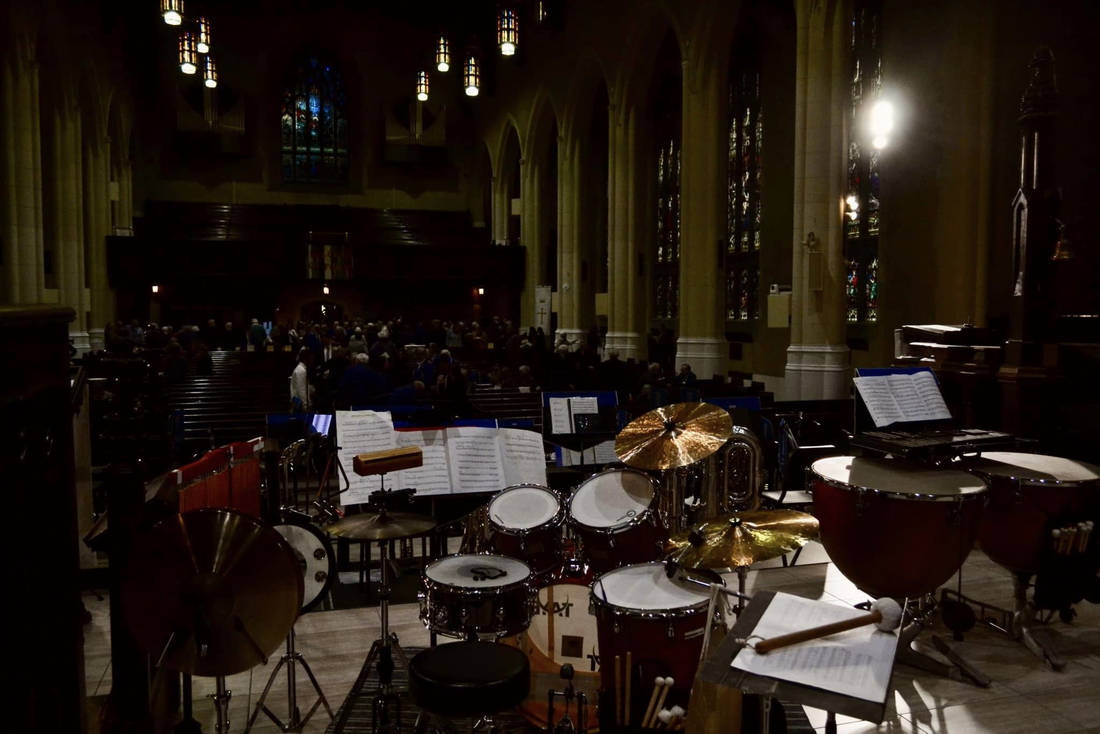
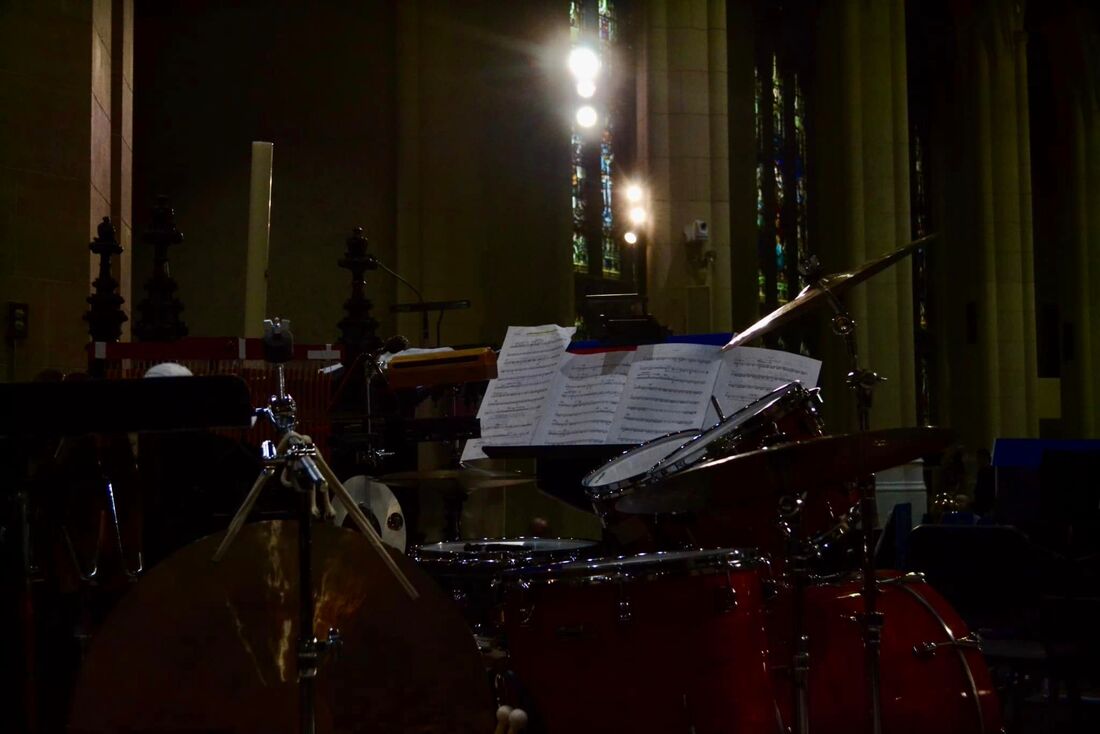
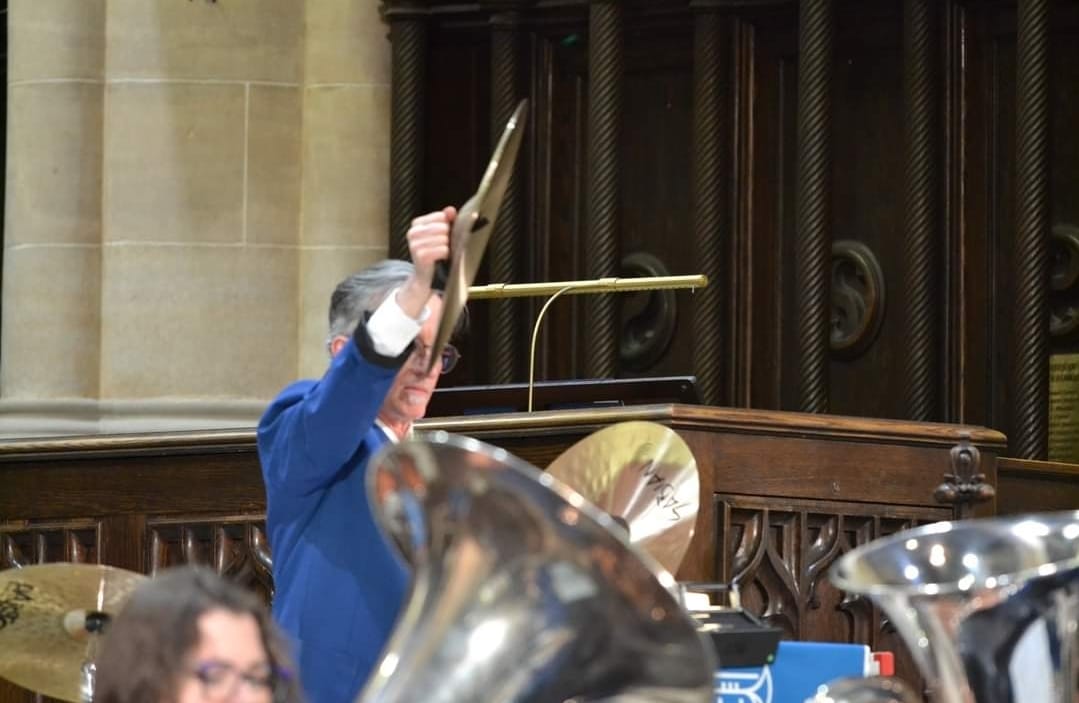
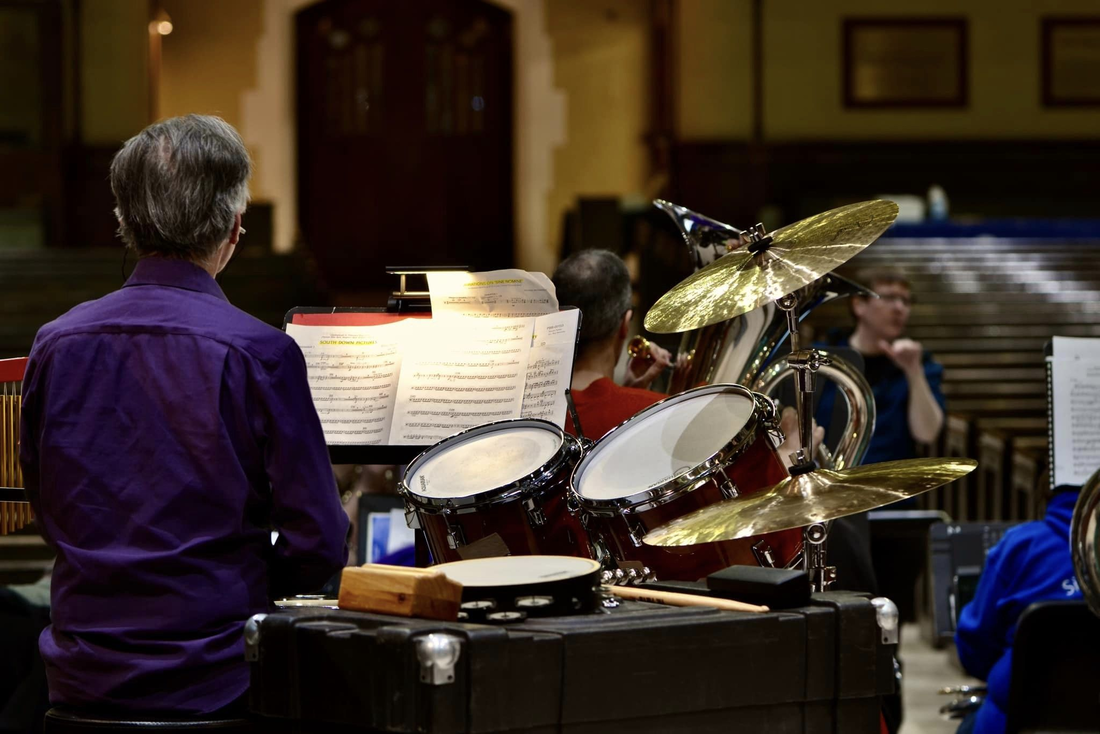
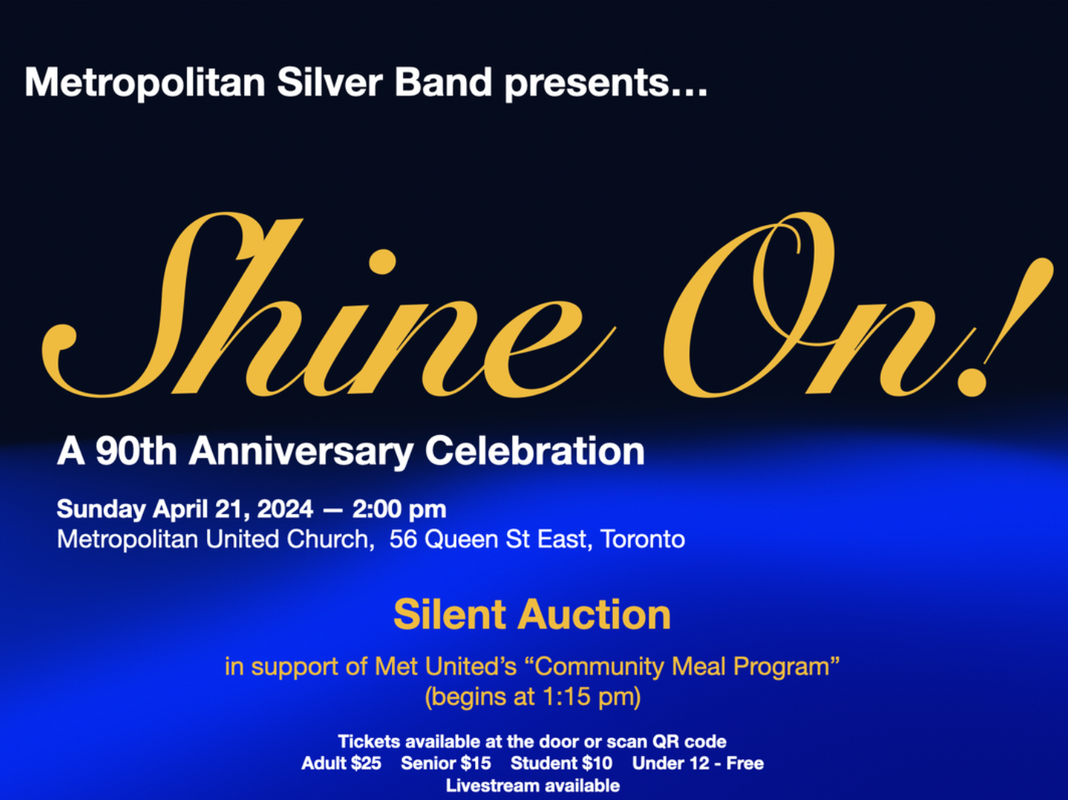
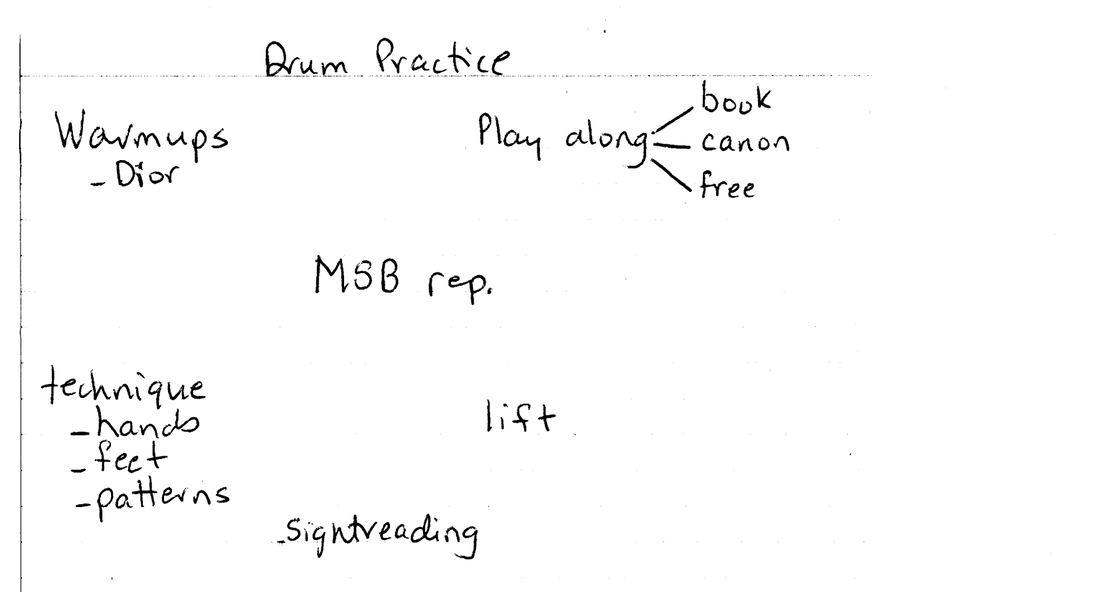
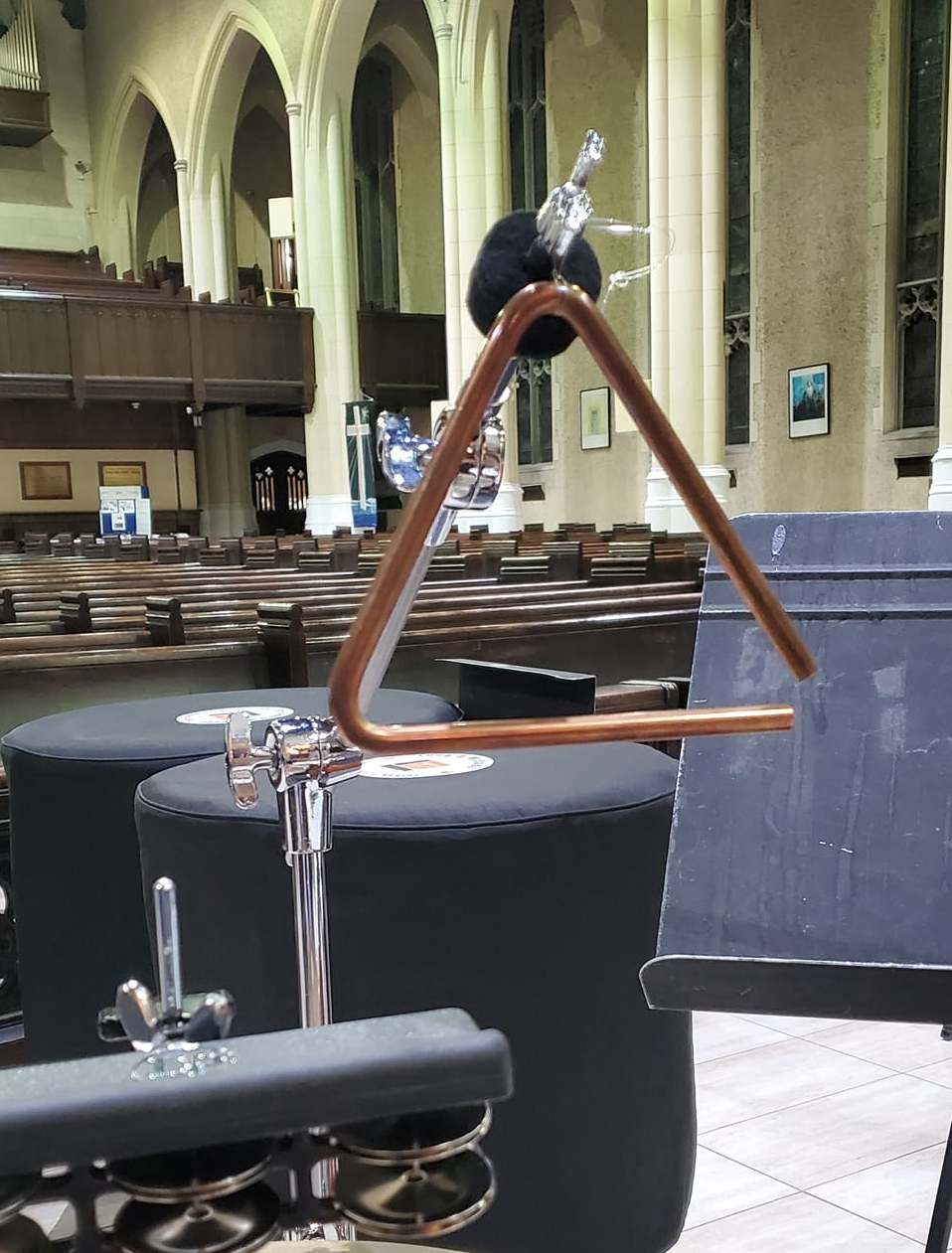
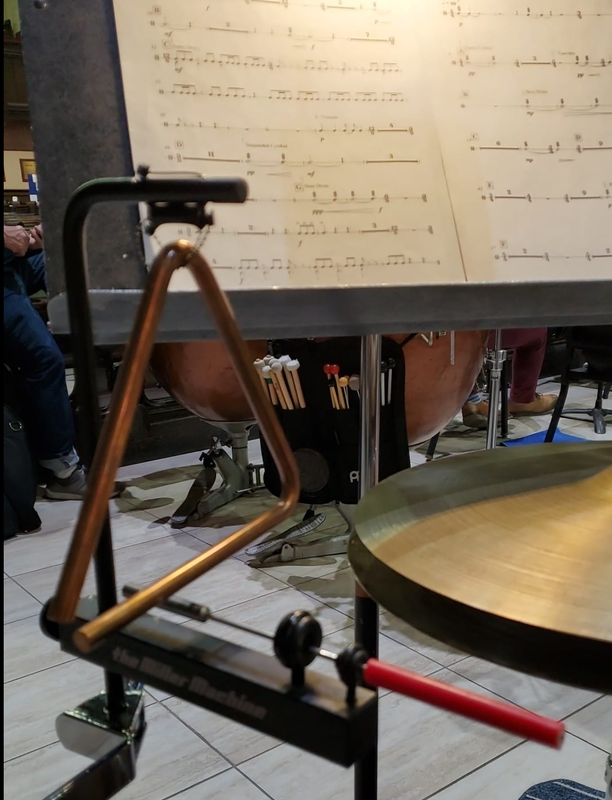
 RSS Feed
RSS Feed